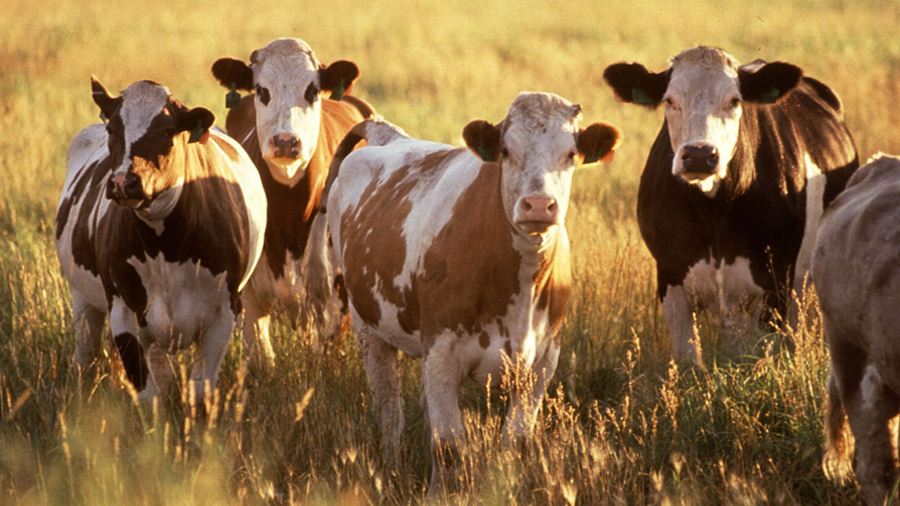Pooping, burping and farting might sound like subjects more likely to elicit excitement from a gathering of toddlers than a group of venture capitalists.
But in reality, technologies tied to these most basic of bodily functions are drawing some large investments, with both agtech and cleantech venture firms leading the way.
Per an analysis of Crunchbase funding data, startups addressing ways to manage livestock and human waste have collectively pulled in hundreds of millions to date, with much of that piling up in the past couple of years. Several companies that had raised seed or early-stage funding when we last tackled this subject in 2021 have since closed larger follow-on rounds.
Search less. Close more.
Grow your revenue with all-in-one prospecting solutions powered by the leader in private-company data.
Startups in what we are affectionately calling the pooptech (and farttech) space make for an ambitious cohort. Below, we curated a list of 14 that raised funding in recent years for everything from methane-reducing seaweed supplements to technology for converting waste to fertilizer.
Where investment is piling up
The largest funding recipient on our list — Oslo-based N2 Applied — has raised over $50 million in venture investment and grants for technology that enables farmers to make fertilizer using slurry (livestock feces and urine), nitrogen from the air, and renewable energy.
In a similar vein, Sistema.bio, with offices in Mexico, Colombia, Kenya and India, has raised over $38 million to scale-up its offering of “biodigesters” that turn organic wastes into fertilizer and biogas for thermal energy.
Australian startup Rumin8, meanwhile, has pulled in nearly $18 million for a feed supplement that reduces methane emissions in livestock. The company says it is “on a mission to decarbonise 100 million cattle by 2030.”
Overall, most funded companies on our list are focused on solutions for livestock waste. We did, however, also identify a couple recently funded companies working on human waste technologies: Epic Cleantec, which makes wastewater reuse systems for buildings, and Wasted, which turns human waste into fertilizer.
Investment and partnerships are increasing
On the animal waste front, one might ask why a sizable influx of money is going to the space now. A more apt question, per agtech investors, may be why so little was going into it previously.
“We see animal agriculture as underfunded and underinvested from a venture capital perspective. I think it’s an enormous opportunity” said Brandon Day, chief operating officer of The Yield Lab Institute, an organization tied to agtech investor The Yield Lab that focuses on agriculture innovation.
This isn’t a new perspective for St. Louis-based The Yield Lab. The seed-stage investor instigated interest in the space back in 2019 with its “Manure Challenge,” an accelerator program for entrepreneurs with new approaches to managing animal waste.
Several Manure Challenge finalists have since raised venture funding. Given the infrastructure expenditures required in scaling many proposed technologies, mentors and backers have also focused on corporate partnerships along with funding.
That’s part of the strategy for N2 Applied, for instance, which recently entered a strategic partnership with GEA, an $8 billion German industrial conglomerate with a farm technologies division. Per the agreement, GEA is manufacturing machines using N2’s technology for installation on dairy farms.
Another challenge alum, North Carolina-based Phinite, has worked with pork producer Smithfield to scale its waste drying system, which can transform pig excrement into renewable fertilizer, Day said.
Ecological impacts
In addition to agtech and strategic investors, featured companies are drawing backing from sustainability-focused investors.
Rumin8, for instance, counts Bill Gates-backed Breakthrough Energy Ventures as a lead investor for a $12 million round it closed in January. For a fund founded around the mission to reduce global greenhouse gas emissions to net-zero, it’s a logical fit.
Why? As Rumin8 rival Volta Greentech puts it: “There are around 1 billion cows on the planet. Together they produce over 4% of the world’s greenhouse gas emissions just by farting and burping 1 methane gas. That’s 2x more emissions than the world’s fleet of airplanes.”
Photo: Agricultural Research Service, Public domain, via Wikimedia Commons.
According to NASA, cow belching is actually a larger source of methane than cow farting. This is due to enteric fermentation, the digestive process of converting sugars into simple molecules for absorption into the bloodstream, which produces methane as a by-product.↩

Stay up to date with recent funding rounds, acquisitions, and more with the Crunchbase Daily.










![Illustration of pandemic pet pampering. [Dom Guzman]](https://news.crunchbase.com/wp-content/uploads/2021/03/Pets-2-300x168.jpg)

67.1K Followers